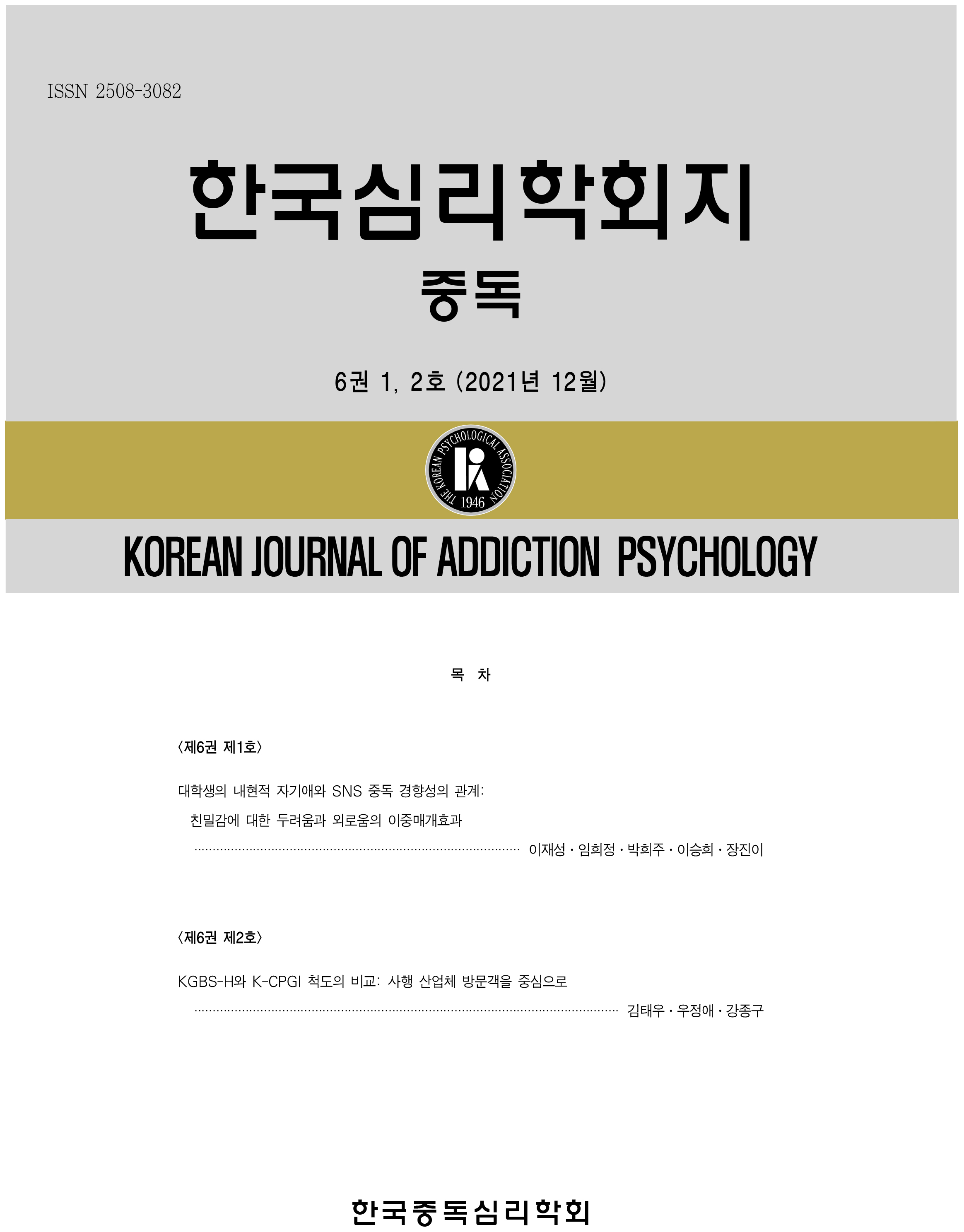- 권한신청
- P-ISSN2508-3082
청소년 스마트폰 게임중독 예방프로그램 개발 및 효과 검증
Development and Effectiveness Verification of Smartphone Game Addiction Prevention Program for Adolescents
정구철(Goo-churl Jeong) (삼육대학교 상담심리학과)

초록
본 연구의 목적은 스마트폰 게임 중독의 위협에 노출되어 있는 청소년들을 위해 스마트폰 게임 중독 예방 프로그램을 통한 스트레스 대처 훈련과 자기생활관리 능력을 향상시켜 스마트폰 게임 중독을 예방하는 것이다. 이를 위해 수도권에 위치한 스마트폰을 사용하는 고등학생 41명을 선별하여, 참여를 원하는 20명을 실험군에 배정하고, 21명은 대조군으로 분류하여 실험군에 스마트폰 게임 중독 예방 프로그램을 실시하였다. 스마트폰 게임 중독 예방 프로그램은 스트레스 대처 훈련과 자기생활관리 능력을 중심으로 개발하였다. 스마트폰 게임 중독 예방 프로그램의 수행은 캠프 형식으로 1박 2일 동안 실시하였다. 연구결과, 스마트폰 게임중독 예방 프로그램에 참여한 실험군은 자기생활관리와 그 하위 요인인 생활습관관리, 학업관리, 금전관리에서 대조군보다 유의한 증진 효과가 있었던 반면, 실험군의 스마트폰 게임중독 수준은 대조군에 비해 유의한 효과가 나타나지 않았고 실험군의 스트레스 대처 능력도 대조군보다 유의한 효과가 나타나지 않았다. 스마트폰 게임 중독 예방 프로그램이 자기생활 관리 향상에 유의한 효과가 있음을 검증하였으며, 이를 기반으로 하여 스마트폰 게임중독 및 스트레스 대처 양식까지 함께 향상시킬 수 있는 프로그램들이 개발되기를 제언하였다.
- keywords
- 게임중독, 스마트폰 게임중독
Abstract
The purpose of this study was to develop a smartphone game addiction prevention program for adolescents, who are exposed to the threat of smartphone game addiction, and to prevent the smartphone game addiction by training them to cope with stress and improving their self management ability. 41 high school students in the metropolitan area who uses smartphones were selected, which 20 of them were assigned to the experiment group, and the remaining 21 were assigned to the control group, and the smartphone game addiction prevention program was conducted. Smartphone game addiction prevention program was developed based on previous programs and previous studies related to smartphone. The program was constructed as an 8-session program at the time of development, but was held as a short overnight camp from April 11∼12 due to school's circumstances. IBM SPSS 21.0 was used for all statistical analyses. As a result, there were significant differences between experiment group and control group in lifestyle management, academic management and money management. But, there were no significant differences between experiment group and control group in smartphone game addiction and stress coping ability. This study verified the significant effect of smartphone game prevention program on the improvement of self-management, and it can contribute in developing programs that improve smartphone game addiction and stress-coping styles.
- keywords
- Game Addiction, Smartphone Game Addiction
- 투고일Submission Date
- 2016-04-30
- 수정일Revised Date
- 2016-06-16
- 게재확정일Accepted Date
- 2016-06-21
- 다운로드 수
- 조회수
- 0KCI 피인용수
- 0WOS 피인용수


